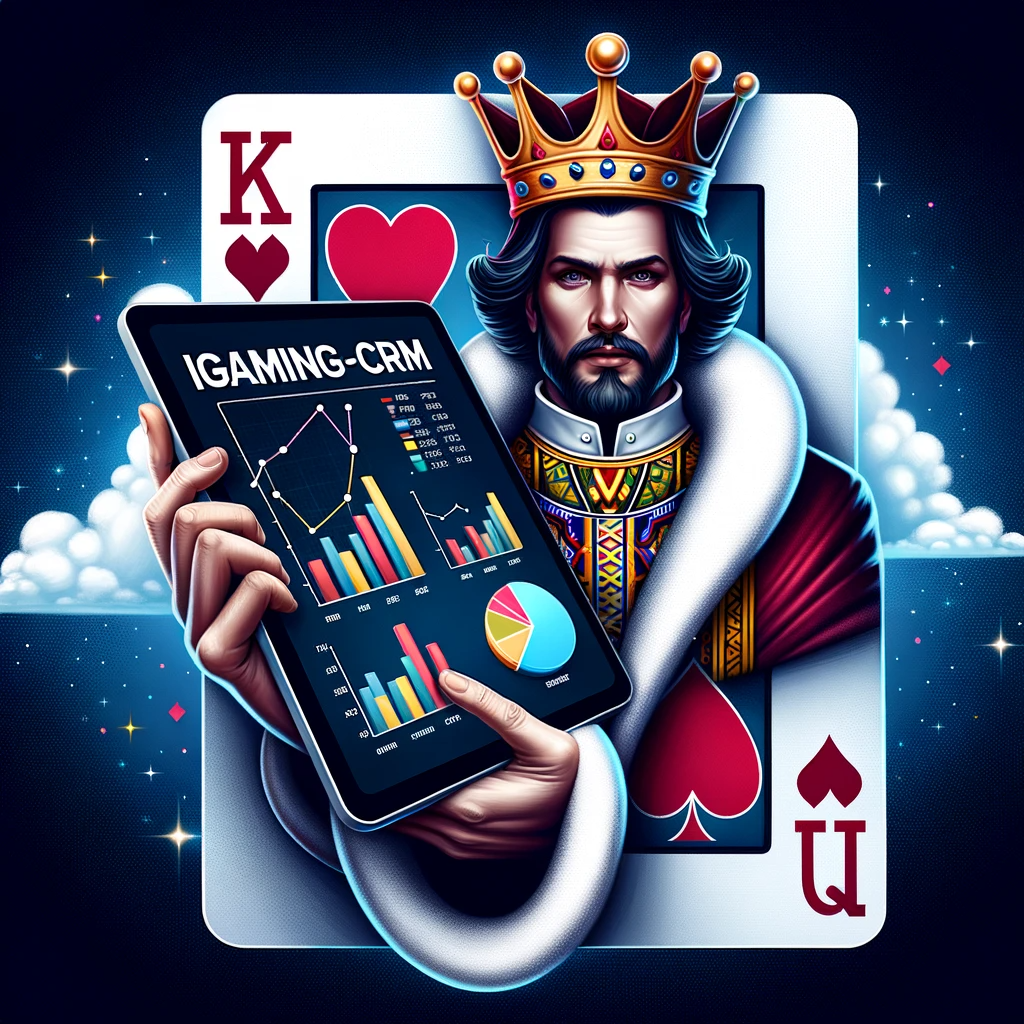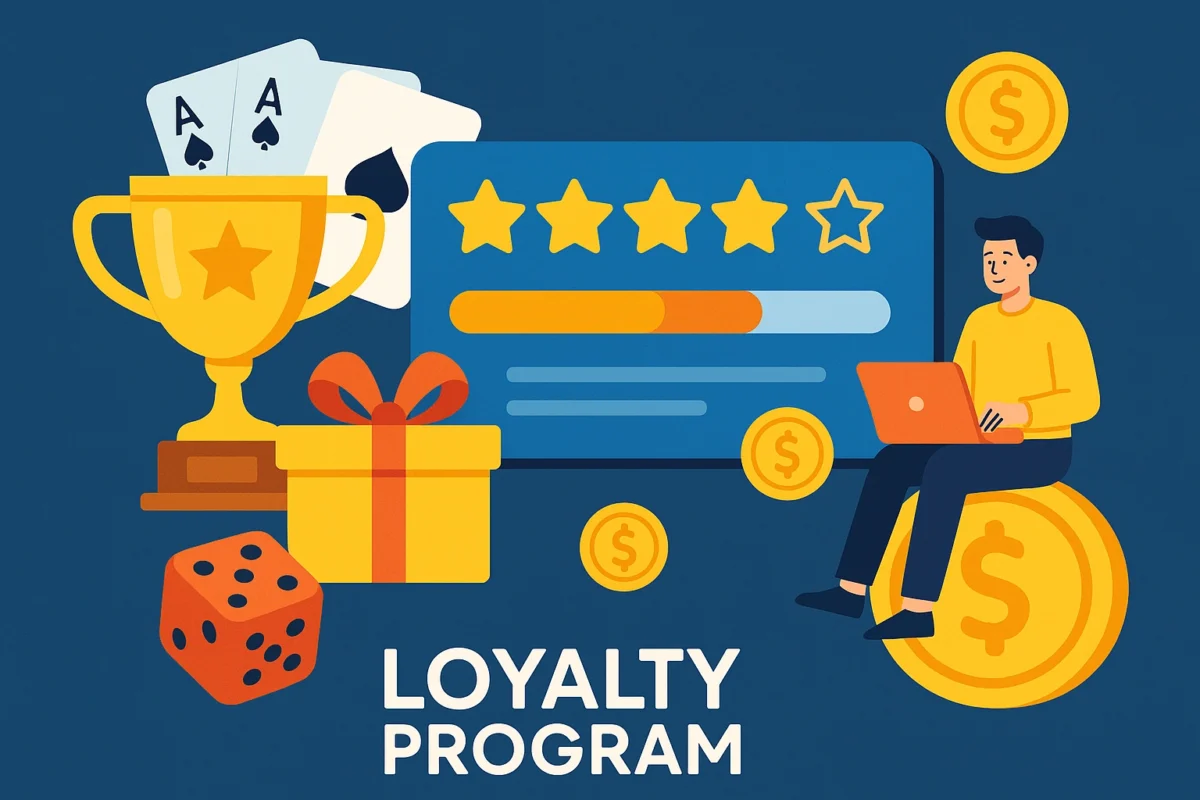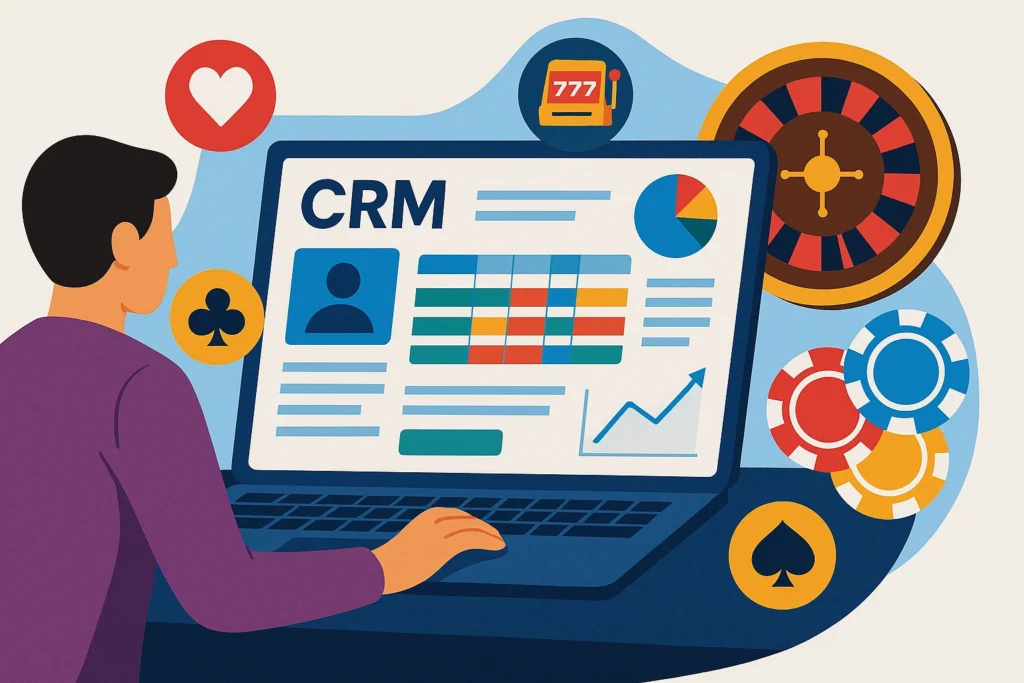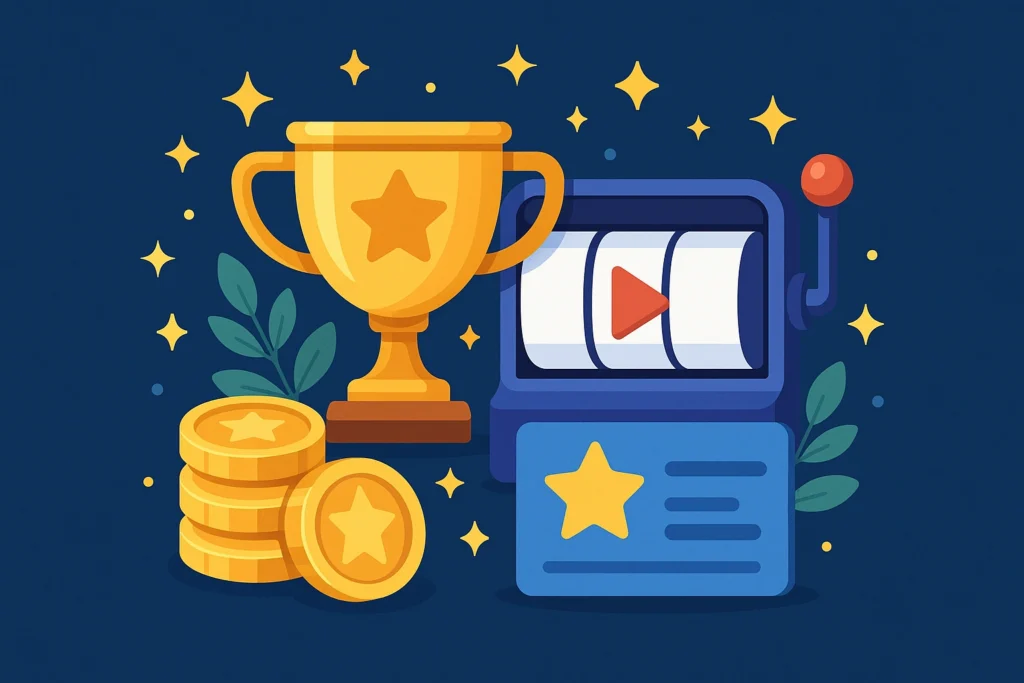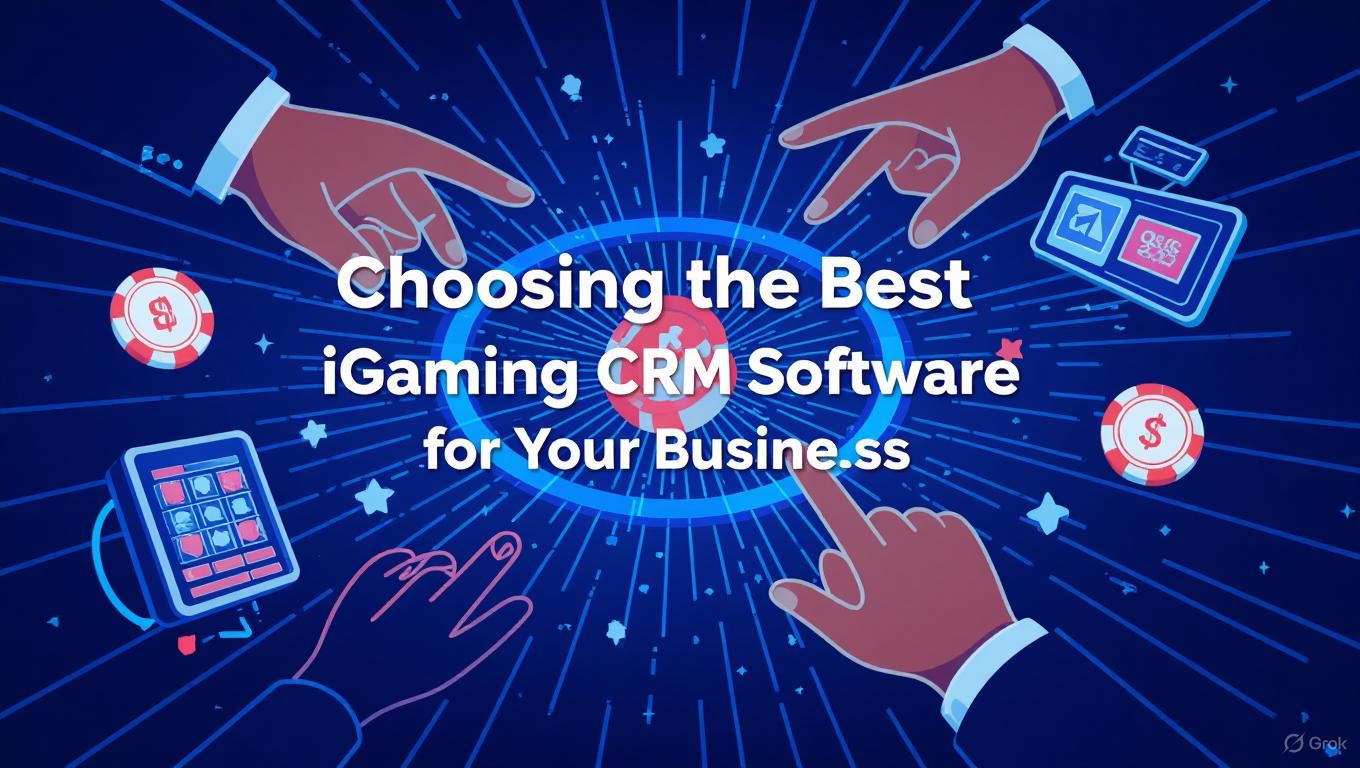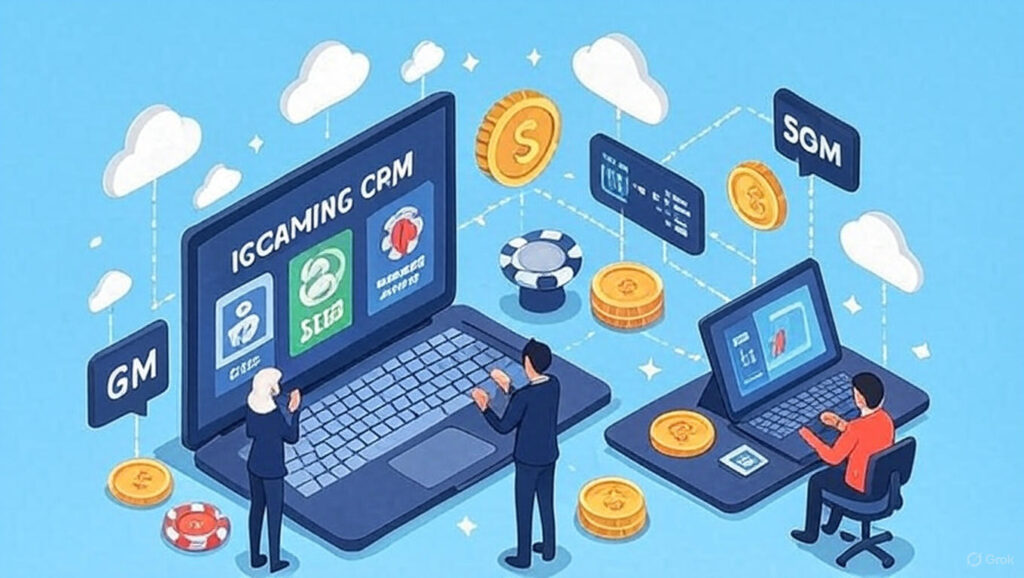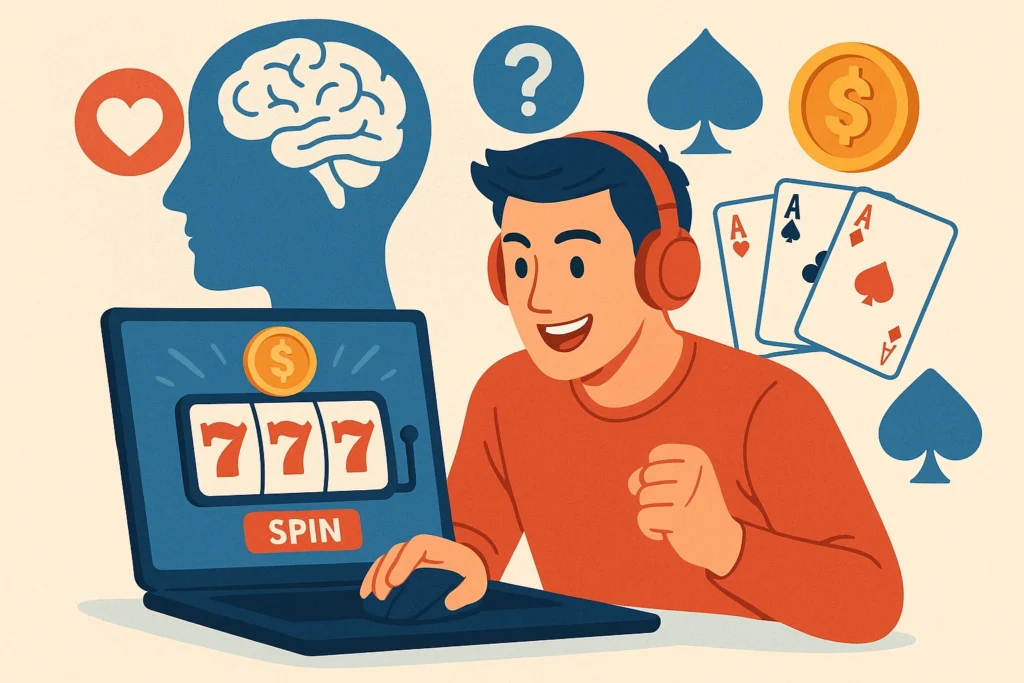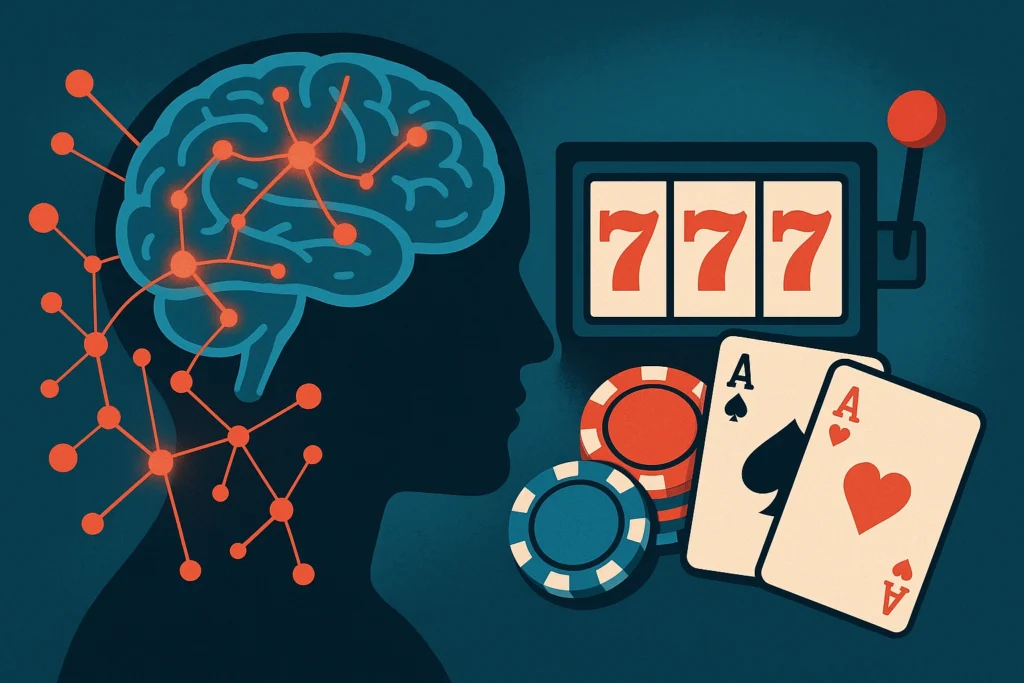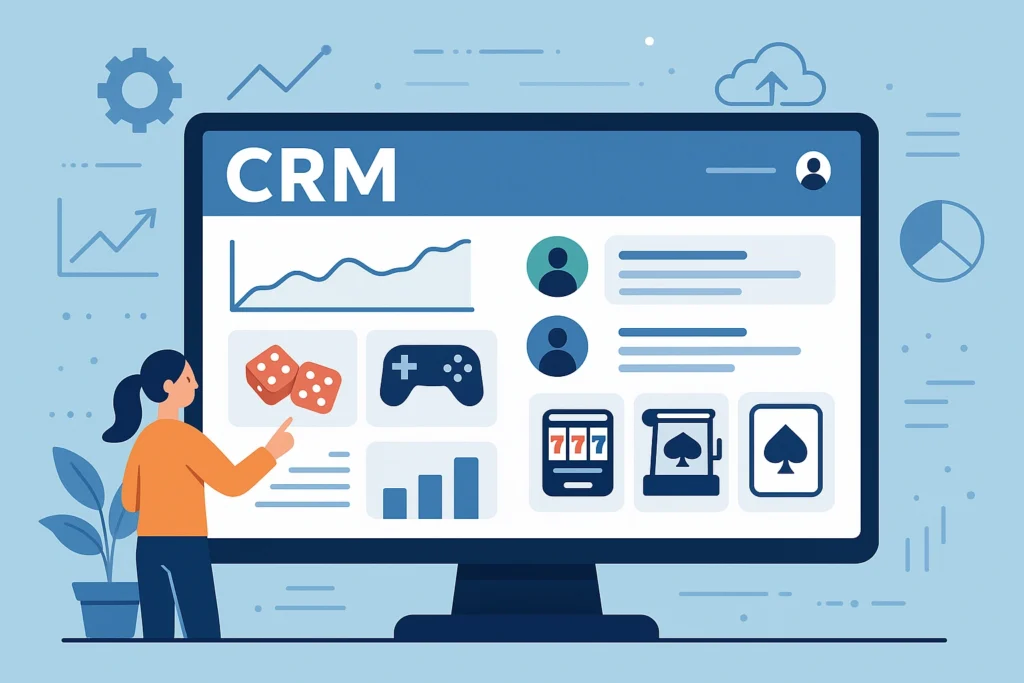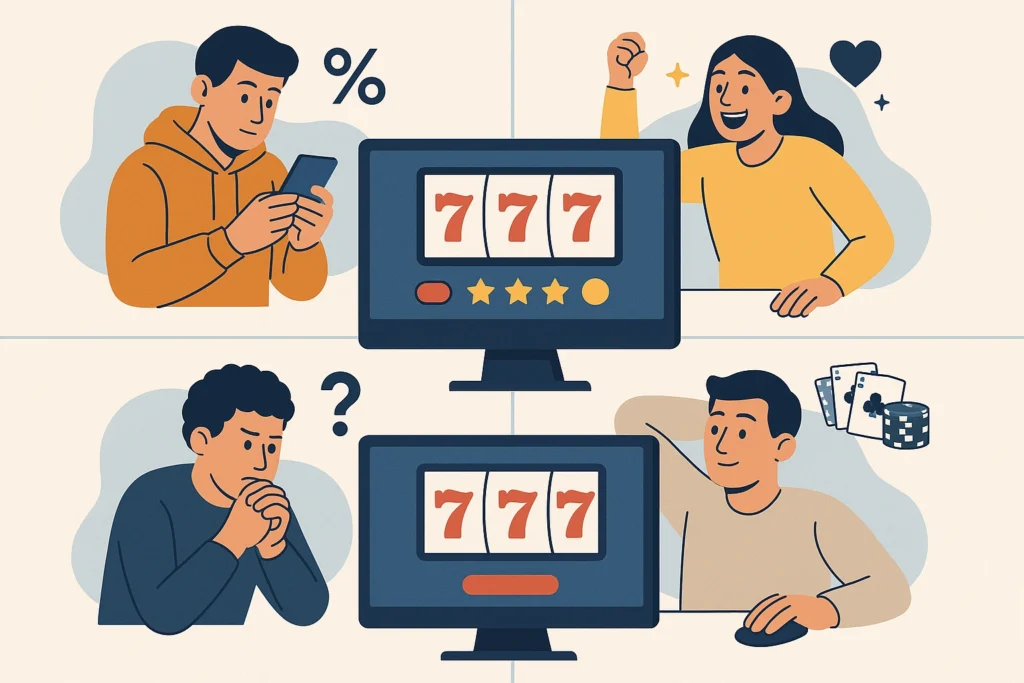iGaming CRM Marketing Solutions: Key Strategies for Success
Introduction
The iGaming industry is a rapidly growing and highly competitive space. With so many platforms offering similar products and services, iGaming operators need innovative solutions to engage players, retain them long-term, and ultimately drive profitability. One of the most effective ways to achieve these goals is by leveraging CRM marketing solutions for iGaming.
CRM (Customer Relationship Management) systems designed specifically for iGaming platforms help businesses optimize player engagement, create personalized marketing campaigns, and enhance player retention. By harnessing the power of CRM marketing tools, iGaming businesses can streamline their operations and create a more seamless experience for players.
In this blog, we will explore the key strategies that can drive success with iGaming CRM marketing solutions. These strategies will help you not only attract players but keep them coming back and encourage them to engage with your platform over the long term.
Why CRM Marketing Solutions are Essential for iGaming Success
1. Personalization at Scale
Personalization is one of the most powerful tools in marketing today, and CRM marketing solutions for iGaming provide operators with the ability to deliver highly tailored experiences to their players. By collecting data on player behavior, preferences, and activities, CRM systems can automate personalized messages, promotions, and incentives that resonate with individual players.
For example, if a player regularly enjoys a certain type of game, the CRM system can send targeted offers or bonuses specifically related to that game. Players who feel that offers are tailored to their interests are more likely to engage and spend time on the platform.
2. Streamlined Campaign Automation
The ability to automate marketing campaigns is a key feature of any CRM for iGaming. Automating repetitive marketing tasks—such as sending promotional emails, SMS messages, or push notifications—frees up time for operators to focus on strategic initiatives. It also ensures that messages reach players at the right time, with little to no manual intervention.
For instance, CRM systems for iGaming can automatically trigger welcome emails for new players, send loyalty bonuses to active players, or offer re-engagement promotions to inactive users. These automated campaigns ensure consistency, reduce errors, and provide a more efficient way to communicate with players.
Benefits:
- Reduced manual effort in marketing management
- Timely communication with players based on their activity
- Increased engagement and retention through automation
3. Multi-Channel Engagement
In the modern digital landscape, players engage with iGaming platforms across various channels, including websites, mobile apps, email, SMS, and social media. To succeed in iGaming, businesses need to engage players across all these channels consistently and effectively.
CRM marketing solutions for iGaming allow operators to manage multi-channel engagement, ensuring that players receive consistent messaging across their preferred communication platforms. Whether it’s sending a promotion via email, offering push notifications through a mobile app, or engaging players on social media, multi-channel engagement helps increase player retention and loyalty.
Benefits:
- Seamless communication across different channels
- Increased player touchpoints leading to higher engagement
- Consistency in messaging, which improves brand recognition
Key CRM Marketing Strategies for iGaming Success
1. Segmenting Players for Targeted Marketing
Player segmentation is a powerful strategy within iGaming CRM marketing. It involves dividing players into groups based on factors such as their activity level, spending habits, and game preferences. By segmenting players, iGaming operators can deliver targeted campaigns and personalized offers that resonate with each group.
For example:
- High rollers could receive exclusive VIP bonuses or invitations to special events.
- Frequent players could be rewarded with free spins or cashback on their favorite games.
- Inactive players might receive special re-engagement offers to bring them back to the platform.
Benefits:
- Increased relevance of offers for each player group
- Higher conversion rates and engagement from targeted campaigns
- Improved retention by meeting the specific needs of each player segment
2. Using Predictive Analytics for Proactive Engagement
Predictive analytics is a game-changing feature of CRM marketing solutions. By analyzing historical data and player behavior, CRM systems can predict future actions and engagement patterns. For example, predictive analytics can identify players who are at risk of churning (leaving the platform) and trigger re-engagement campaigns to retain them.
Similarly, predictive CRM marketing can help operators identify players who are likely to spend more or engage with specific games, allowing for tailored promotions that target high-value players.
Benefits:
- Ability to predict player behavior, allowing for proactive engagement
- Reduced churn rates by identifying at-risk players and addressing issues before they leave
- Optimized marketing efforts with data-driven insights
3. Implementing Loyalty and Rewards Programs
Loyalty programs are a key component of CRM marketing for iGaming. Loyalty rewards encourage players to continue engaging with the platform by offering them incentives based on their activity. CRM systems automate loyalty rewards, ensuring that players are consistently rewarded for their engagement.
For example, players who regularly play a certain game or make frequent deposits could earn loyalty points, which they can redeem for bonuses, free spins, or access to exclusive events. Similarly, VIP programs can be implemented for high-rollers, offering them tailored rewards and personalized experiences.
Benefits:
- Increased player retention by rewarding ongoing engagement
- Enhanced player satisfaction through personalized rewards
- Encouraged loyalty by offering exclusive rewards to high-value players
4. Real-Time Performance Tracking and Optimization
Real-time performance tracking is a must-have feature in CRM marketing solutions for iGaming. By monitoring key metrics such as player activity, spending, and engagement, operators can assess the effectiveness of their campaigns and adjust strategies accordingly.
For instance, if a promotional campaign is not performing as expected, operators can tweak the messaging or adjust the offer in real-time. This ability to adjust campaigns quickly helps ensure that marketing efforts are always aligned with player interests and behavior.
Benefits:
- Immediate feedback on campaign performance
- Ability to make data-driven decisions and adjustments
- Continuous optimization of marketing efforts for better results
Top CRM Marketing Solutions for iGaming
When looking for the best CRM marketing solutions for iGaming, consider platforms that offer robust automation, real-time analytics, and personalization features. Here are some of the top CRM platforms for iGaming:
1. Salesforce
Salesforce offers comprehensive CRM marketing solutions that are scalable and highly customizable. With Salesforce for iGaming, businesses can automate marketing campaigns, track player activity, and send personalized offers based on data insights.
2. HubSpot CRM
HubSpot is known for its user-friendly interface and powerful automation features. For iGaming businesses, HubSpot can help streamline marketing efforts, personalize communications, and manage multi-channel campaigns effectively.
3. Optimove
Optimove specializes in CRM marketing and customer retention. Its predictive analytics capabilities allow iGaming operators to deliver personalized messages and offers based on player behavior, improving engagement and retention.
Conclusion
CRM marketing solutions for iGaming are essential tools for operators looking to increase player retention, drive engagement, and optimize their marketing strategies. By implementing personalized marketing, predictive analytics, and loyalty programs, iGaming businesses can foster stronger relationships with players and keep them engaged for the long term.
By choosing the right CRM platform, iGaming operators can automate marketing campaigns, track real-time performance, and optimize player experiences. The result is improved retention, higher revenue, and a more loyal player base.
Get Started with CRM Marketing Solutions for iGaming Today
Ready to boost your player retention and engagement with CRM marketing? Subscribe to our newsletter for more insights on CRM solutions for iGaming, or download our guide to help you find the best CRM platform for your iGaming business today
